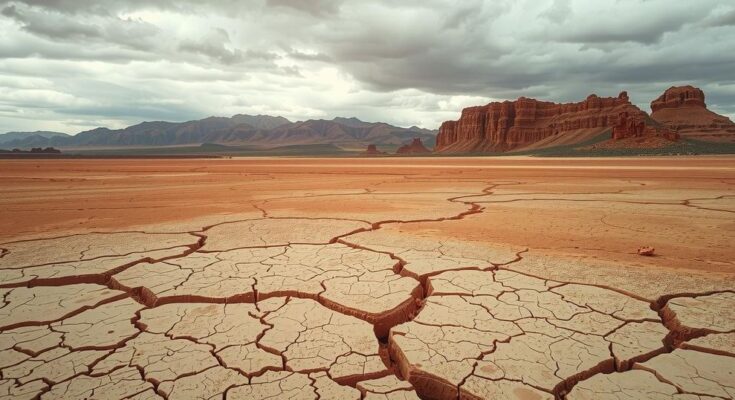Morocco’s recent heavy rains have slightly improved dam levels, now at 35%, but still indicate a deepening water crisis. Experts warn against complacency, emphasizing the need for sustainable water management strategies. The historical context of drought in Morocco is critical, and both climate and agricultural practices necessitate urgent reform to address ongoing challenges.
In Morocco, recent heavy rains have brought temporary relief following a seven-year drought, with dam filling rates increasing from 26% in the previous year to approximately 35% at present. Despite this positive shift, the figures are still well below the 68% mark observed in 2018, highlighting a persistent water crisis. Notably, the northern regions of Morocco have benefitted most from recent rainfall, while central and southern areas continue to experience significant water shortages.
Experts emphasize that the rainfall should not deter attention from underlying structural water issues inherent to Morocco’s climate history. Mohammed-Said Karrouk, a climatology professor, remarked that drought is an enduring factor in Moroccan history, stressing the need for sustainable management practices rather than short-term solutions. He noted that despite technical advancements in water infrastructure, inadequacies in management practices persist.
Karrouk criticized the government’s focus on water production and exportation, suggesting that increasing water consumption has exacerbated the challenges faced during periods of drought. He explained that unresolved management issues prevent the recovery of depleted water tables in many regions, calling for comprehensive reforms in water management policies.
Similarly, Abdelhakim El Filali, a water and environmental expert, acknowledged the importance of rainfall while cautioning against complacency regarding water stress. He pointed out that the challenge primarily arises from heightened demand for water resources amidst periods of drought. El Filali warned against viewing recent rains as a panacea, highlighting the long-standing climate pattern of alternating wet and dry years in Morocco.
He called for urgent reforms in water consumption policies, urging the enforcement of existing laws to ensure sustainable practices. Additionally, he criticized delays in infrastructure projects, asserting that more proactive measures could have lessened the impact of the water crisis. Both experts agree that Morocco must take a long-term perspective in managing its water resources, acknowledging its climate’s cyclical nature and the necessity for accountability in water governance.
The recent rains in Morocco provide temporary relief, but the nation continues to grapple with a significant water crisis exacerbated by long-standing drought conditions. Experts assert that effective management and reform are essential to address the structural issues affecting water availability. Sustainable consumption practices and prompt implementation of essential infrastructure can mitigate future crises, emphasizing the importance of a long-term strategy for water resource management.
Original Source: www.moroccoworldnews.com




